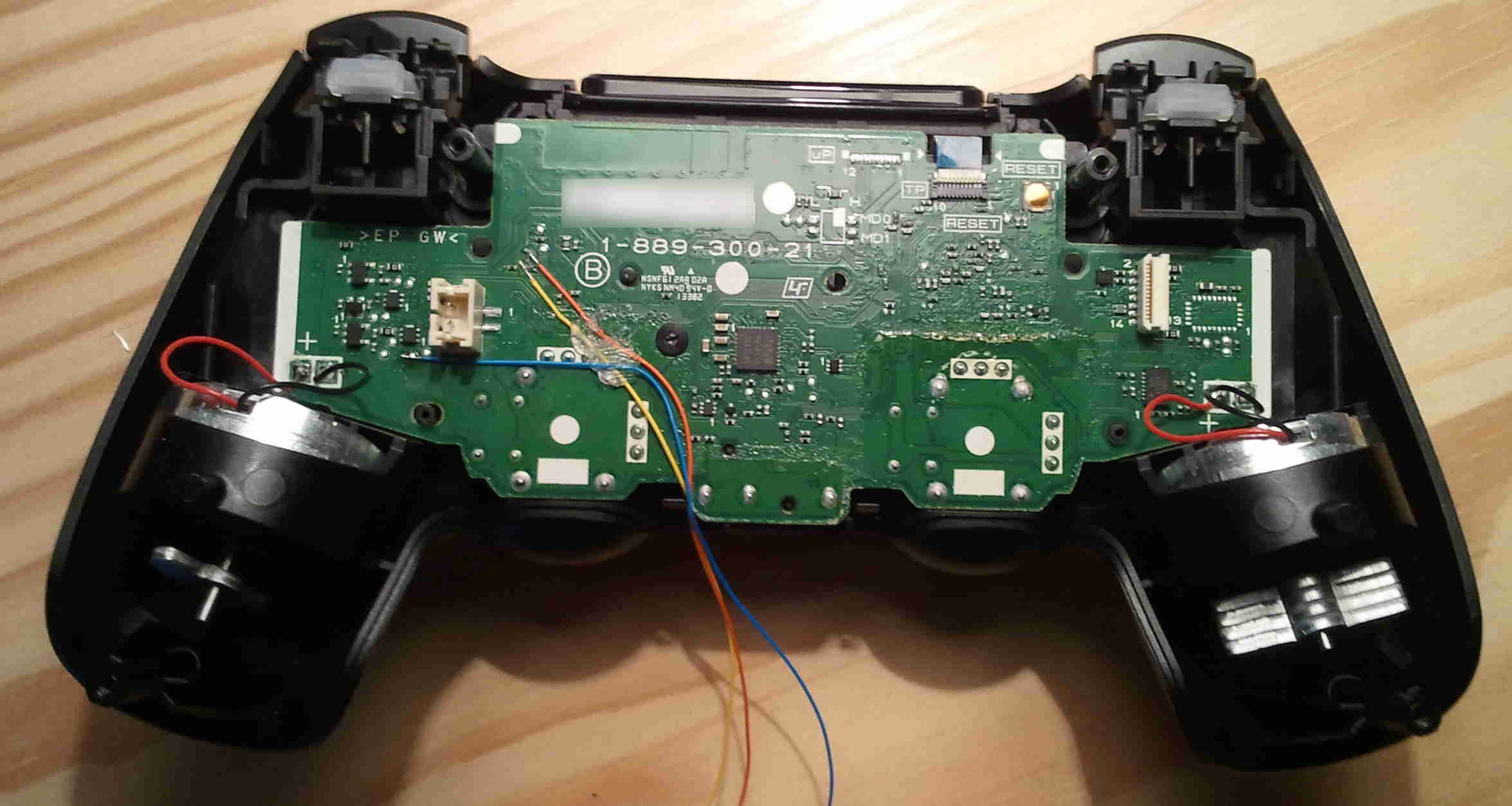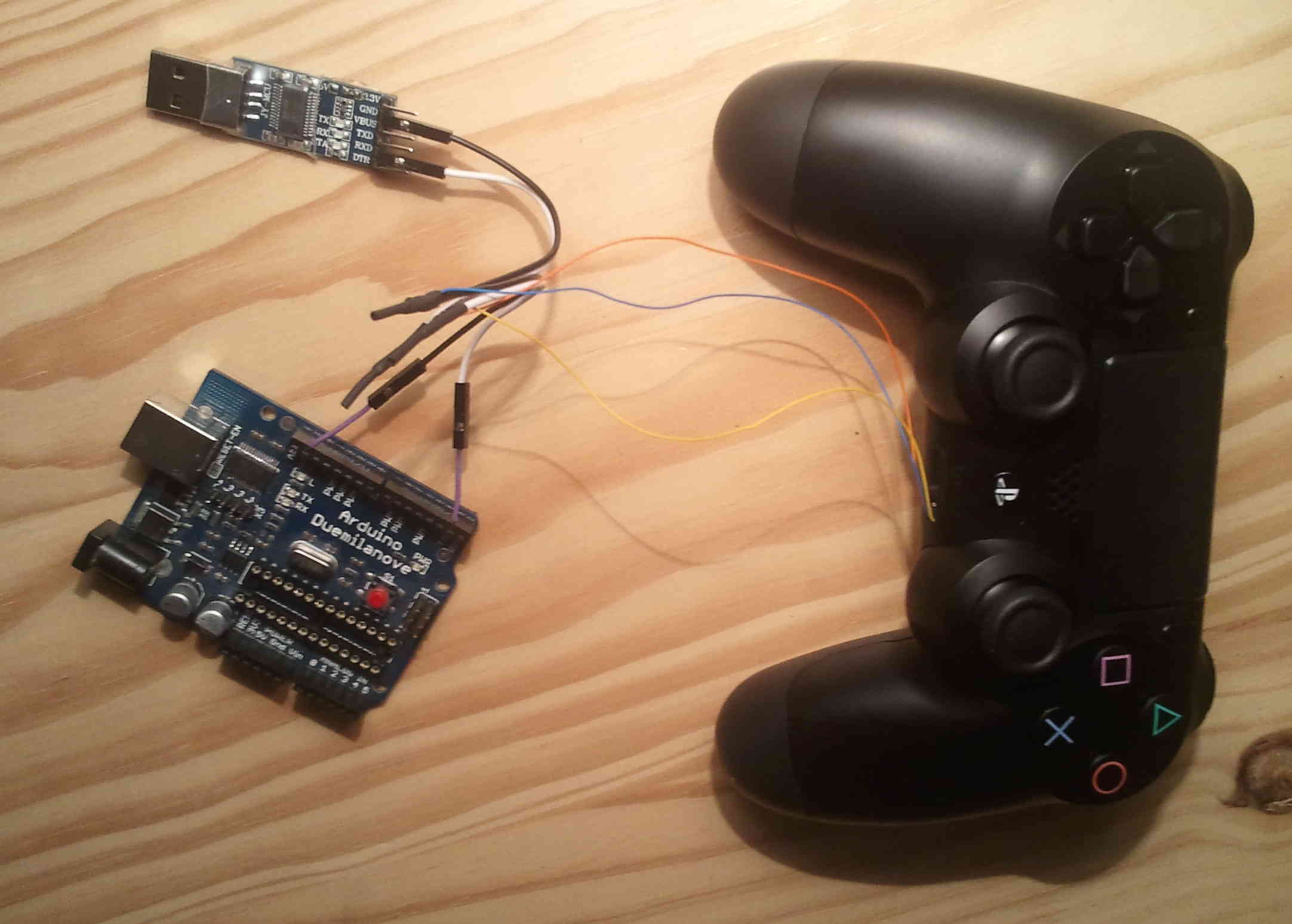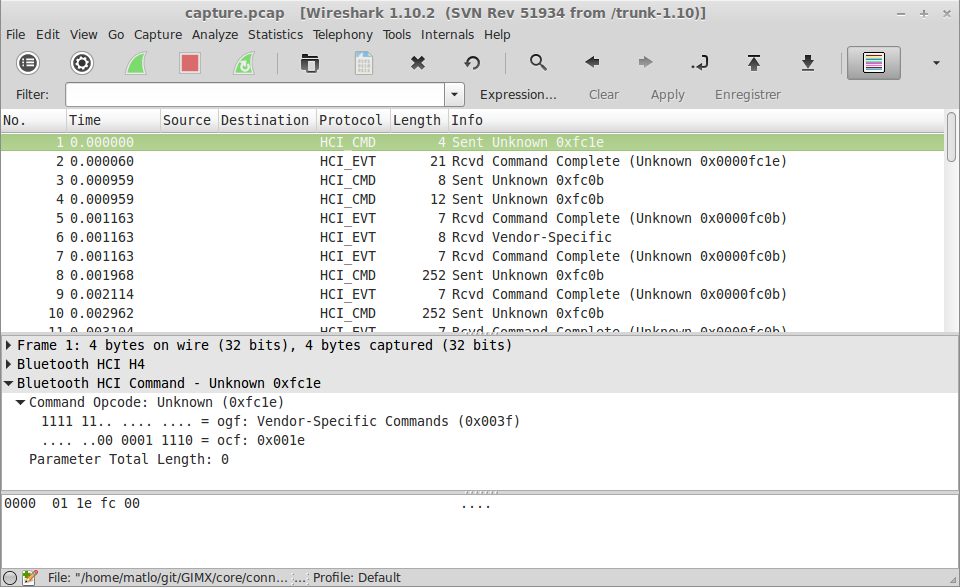These last days I have developed a tool to sniff the UART of the Bluetooth module that is located inside a DS4 controller. Credit goes to Frank from eleccelerator for finding the UART, the test points, and the transmission parameters.
The following picture shows the test points:

The blue wire is Gnd, and the others are Rx & Tx.
Knowing the UART transmission parameters (8N1, 3Mbps), it is possible to sniff the traffic using the Rx lines of two USB to UART adapters. CP2102-based adapters only support baudrates up to 2Mbps, but FT232RL-based adapters support up to 3Mbps.
The following picture shows two FT232RL adapters (one is a duemilanove arduino with the AVR chip removed) connected to a DS4:

I wrote a tool that reads the data coming from the adapters. It translates a byte stream into a packet stream according to the HCI transport specification. It can either write the packets into a capture file that can be opened with wireshark, or write them to its standard output, so that it can feed the standard input of wireshark for a live display.

The only drawback of this method compared to logic probes is that it can’t give precise timestamps, and it can’t guarantee that the packets are in the right order.
